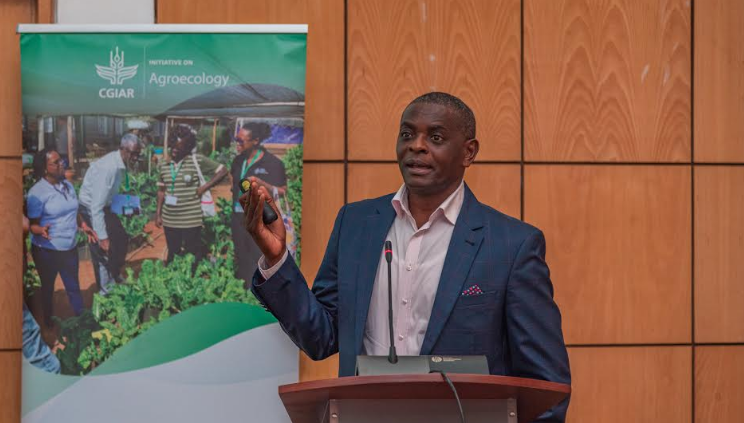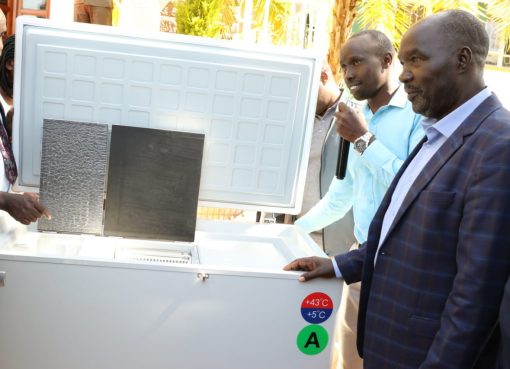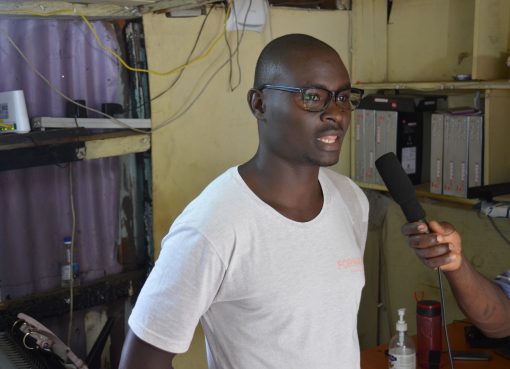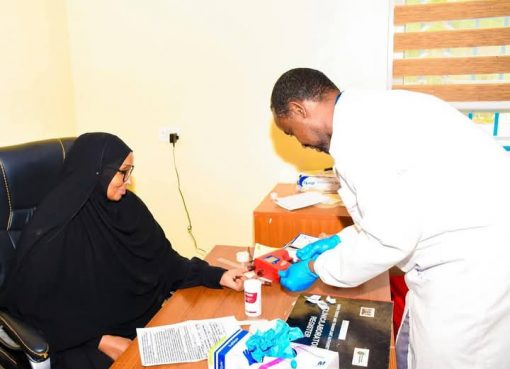The Consultative Group on International Agricultural Research (CGIAR) is calling for collaborative partnerships among stakeholders to advance agroecological transitions in Kenya.
While agroecological solutions exist at the farm level, scaling them to broader food, land, and water systems remains challenging due to insufficient evidence, misaligned policies, inadequate capacities, and limited financial mechanisms.
The CGIAR Initiative on Agroecology (Kenya) end-of-initiative dissemination workshop at the World Agroforestry Centre in Nairobi revealed that advancing agroecological transitions requires a multi-pronged approach rooted in collaboration, evidence, and systemic transformation.
Principal Scientist and Agroecology Lead at the Centre for International Forestry Research and World Agroforestry (CIFOR-ICRAF), Prof. Alex Awiti said that building robust partnerships through stakeholder collaboration fosters innovation and capacity building in advancing agroecological transformation.
Awiti said they have been promoting the application of appropriate agroecological principles by farmers and communities in various contexts with support from partners in Makueni and Kiambu Counties since 2022.
“We have built a farmer movement, where we have been working with 900 farmers in Makueni County and about 500 farmers in Kiambu County through the Community Sustainable Agriculture and Healthy Environment Programme (CSHEP),” he said.
The Principal Scientist said that agroecology offers a transformative pathway integrating sustainable and resilient agricultural practices with enhanced agency for farmers and food system actors, particularly women and youth.
“Empowering communities through capacity building and inclusive value chain integration drives the adoption and sustainability of agroecological practices at scale,” he said, adding that they are bringing in more evidence that supports the reason why we should transition to a more sustainable production model.
He divulged that episodic drought and unreliable rainfall are critical impediments to sustainable production systems, as is soil degradation, which is a perennial problem that arises from land management and semi-arid characteristics of most of our land.
“Kenya is more or less about 75 percent dryland, and we produce food and incur a living in about 15 percent of the territory,” said Awiti, adding that redesign of food systems is urgently required to achieve ecological, economic, and social sustainability.
He said that research and innovation in food, land, and water systems are crucial for a sustainable, climate-resilient world free from hunger and malnutrition.
Awiti further said that the agroecology initiative creates a new value proposition for a process that integrates trees, crops, and livestock in farming landscapes to simultaneously bring ecological intensification to these farm systems.
He said that they recently supported the process of writing and implementing the National Agroecology Strategy that was launched recently, an initiative that situated the critical relevance of food systems transformation for the country.
Meanwhile, Intersectorial Forum on Agrobiodiversity and Agroecology (ISFAA) Founder and Coordinator Martin Oulu underscored the critical role collaboration among stakeholders plays in advancing agroecological transformation.
Oulu observed that Kenya’s agroecological principles are embedded across various sectors, but a lack of harmonisation might undermine their effectiveness.
“As a multi-stakeholder platform, we bring together players and different stakeholders interested in the area of agroecological transformation for sustainable production systems,” he said.
He said that ISFAA, in collaboration with the government and other partners, spearheaded the establishment of the National Agroecology Strategy for Food System Transformation 2024-2033.
“The development of the country’s food system transformation pathway plan shows the power of collaboration,” said Oulu, adding that this could not have been possible as individual institutions.
He noted that the implementation of the national agroecology strategy is a key area of collaboration and that the strategy has some institutional structures that will help in coordinating agroecology activities.
The Initiative on Agroecology is a collaborative partnership of eight CGIAR entities, as well as CIFOR-ICRAF and the French Research Institute CIRAD, under the Agroecology Transformative Partnership Platform (TPP) project. It is funded by the CGIAR System Council.
In Kenya, the CGIAR Initiative on Agroecology was implemented in Makueni and Kiambu counties in collaboration with the Community Sustainable Agriculture and Healthy Environment Program (CSHEP), the Participatory Ecological Land Use Management Association Kenya (PELUM), the Drylands Natural Resources Centre (DRNC), and the Intersectorial Forum on Agrobiodiversity and Agroecology (ISFAA).
By Anita Omwenga





